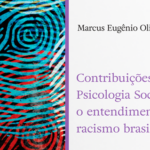Gilberto Icle, Editor-in-chief of the Brazilian Journal on Presence Studies, Porto Alegre, RS, Brazil
 The Brazilian postgraduate system – which today comprises about fifty graduate programs in Arts, Visual Arts, Theater, Dance, Music and related areas – is an area of smaller dimension in CAPES, but it has been protagonist of a huge growth in recent years, following the expansion of Brazilian post-graduate programs in the last fifteen years.
The Brazilian postgraduate system – which today comprises about fifty graduate programs in Arts, Visual Arts, Theater, Dance, Music and related areas – is an area of smaller dimension in CAPES, but it has been protagonist of a huge growth in recent years, following the expansion of Brazilian post-graduate programs in the last fifteen years.
In this expansion, the research and its forms of dissemination assume a key role. Thus, we have also seen the growth of scientific journals spectrum that address arts topics and, in particular, Performing Arts.
The Scenic Arts journals began in the 1990s in a quite handmade way. However, it was from 2010 that they took a path towards increasingly expressive professionalization. In this sense, the Brazilian Journal on Presence Studies has had a dominant role, being an example for the area, as a journal with vertiginous growth since its inception, assuming solid editorial practices and guaranteeing the publication of research studies that actually have a significant impact in the area.
At the same time, its presence at the Fórum Nacional de Periódicos de Artes (National Forum of Arts Journals) has helped many new journals to structure themselves, advancing the whole area. The examples given by the journal in terms their form of organization are many: from the professional evaluation and communication practices, to the fact that the journal is one of the few on this area indexed in several databases. Such elements – central nowadays in the editorial practices of journals with recognized academic quality – are not a tradition in the arts; therefore, the journal is really at the forefront that drives the area towards a solid and continuous professionalization.
Therefore, for the next months we still have different news. The first is that the Brazilian Journal on Presence Studies will adopt continuous publication starting with volume 9, referring to 2019. This will speed up publication even more, allowing reaching the desired 4-month period between submission and publication.
Besides, the editorial committee is dedicated to discussing the transition from open access to open science, considering the different possibilities offered by this modality, so in the near future we will be better able to offer our readers what is in the arts output to provide even greater visibility.
Assuring that our internationalization process is effective and lasting, we will invest in the coming years in expanding the spectrum of our foreign readers in continents not yet explored by the journal. This is the case, for example, and especially of Africa and Asia.
These are bold plans that may be less effective in the face of the financial restrains experienced by research organizations in Brazil. However, we will not save efforts to achieve these goals, given the importance of our mission: the dissemination of the original knowledge and social impact output.
All of it has been planned with the aim of preserving the necessary quality so that the performing arts area can effectively consolidate itself as an interdisciplinary wish through which current most important topics are guarded and able to be developed.
In an inseparable way, and from the point of view of the postgraduate system, the collaboration of RBEP is very strong to disseminate excellence both in research produced in Brazil and by foreign professionals that we would otherwise do not have access to.
Subsequently, Professor Vera Beatriz Siqueira, coordinator of the area of Arts at CAPES, talks briefly about the journal and its position for the area of Arts in Brazil.
External link
Revista Brasileira de Estudos da Presença – RBEP: www.scielo.br/rbep
About Gilberto Icle
Gilberto Icle holds a PhD in Education from the Universidade Federal do Rio Grande do Sul. He is a tenured professor at the Postgraduate Program in Education at the Universidade Federal do Rio Grande do Sul and at the Postgraduate Program in Performing Arts at the Universidade de Brasília. He is a 1D productivity fellow at CNPq. e-mail: gilbertoicle@gmail.com
About Vera Beatriz Cordeiro Siqueira
Vera Beatriz Cordeiro Siqueira holds a PhD in Social History from the Universidade Federal do Rio de Janeiro. She is an associate professor and pro-scientist in the area of Art History at the Universidade Estadual do Rio de Janeiro. She is recipient of a Productivity Fellowship of CNPq and coordinator of the arts area at CAPES. e-mail: verabcsiq@terra.com.br
Como citar este post [ISO 690/2010]:




















Recent Comments